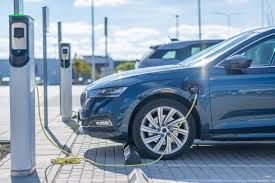Recent trends suggest that the auto industry might be witnessing a significant shift away from traditional internal combustion (IC) vehicles, with electric vehicles (EVs) gaining momentum.
A comment by reader Tom Storey on a recent article highlighted some intriguing points:
From a dealer marketing perspective, there is a $7,500 incentive for many new EVs. The US is not yet in the “early majority” phase of adoption. People will jump in as the wave develops. The EU is ahead of the US by 18 to 24 months. EU BEV sales share is about 15% overall, while the US is about 8%. By the second half of 2026, the US might hit 15% with nearly 60 new EV models available. Meanwhile, the EU could be closing in on a 27% BEV share, entering the “early majority.” China is an interesting case as incentives fluctuate, but they seem to be in the early majority with around 25% BEV sales share in the first half of 2024.
EU sales of new IC vehicles are down 30% since 2019.
US sales of new IC vehicles are down 20% since 2018.
The Decline of Legacy Technology
Storey’s insights emphasize that consumers tend to stop buying outdated technology quicker than they adopt new technology. This trend is evident in the current automotive market, where sales of IC vehicles are declining faster than the adoption rate of EVs.
Growth of Electric Vehicles
Despite concerns about EV sales growth not meeting expectations, the market has seen substantial increases. For instance, Ford has reported significant growth in its EV segment this year.
Current Auto Sales Trends
US auto sales were down 5% in the first quarter compared to the same period in 2019, as noted in a recent report. Additionally, the number of cars and trucks on dealer lots across the USA is increasing due to higher production rates than sales. This growing inventory suggests a shift in consumer preference away from traditional IC vehicles.
The traditional IC vehicle market may be experiencing its last attempts to maintain dominance amidst the rising popularity of EVs. The shift towards electric vehicles appears inevitable, with significant changes in consumer behavior and industry trends supporting this transition.
Original Story at cleantechnica.com
